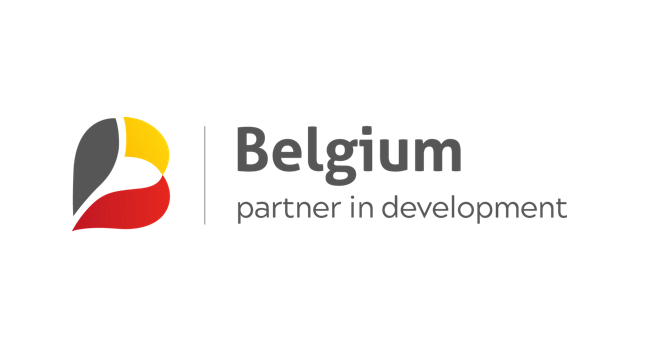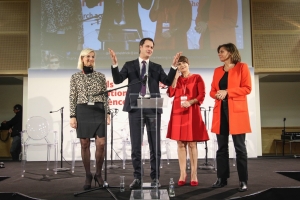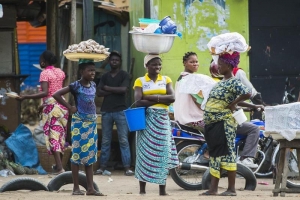The new visual identity of the Belgian development cooperation, the finishing touch of an intensive reform

The Belgian development cooperation will from now on appear on the field with a new logo, a new visual identity and a new baseline: “Belgium, partner in development”. Deputy Prime Minister and Minister for Development Cooperation Alexander De Croo unveiled today the new visual identity during the New Year reception of the Belgian development cooperation, in the presence of some 450 colleagues and partners of the Belgian development cooperation.
The new visual identity is the finishing touch of an intensive reform of the Belgian development cooperation over the last years.
On 1 January 2018, Enabel was launched. Enabel is the renewed Belgian development cooperation agency, responsible on the field for the coordination and the implementation of the Belgian development policy. Enabel has more autonomy than its predecessor BTC and can act with more flexibility. At the same time, more results are also expected.
The number of partner countries and partner organisations was reduced in 2015 to reduce dispersion and increase impact.
The private sector received a more important role in the Belgian development policy. The capital of the Belgian Investment Company for Developing Countries (BIO) was opened to private investors in order to open up the financing of the development policy, an evolution which is already taking place internationally. Through the Belgian Charter for the Sustainable Development Goals, Belgian companies and civil society organisations work also more intensively together.
Non-governmental cooperation was restructured in 2016 in order to introduce more concentration and more synergies.
Belgium’s international development policy puts a stronger focus on (humanitarian) innovation and on the role of digitalisation as a lever for development. A more central place is given to human rights, such as, for example, through the launch of the She Decides movement for the promotion of the sexual and reproductive health and rights of girls and women.
With these reforms, the Belgian development cooperation places itself fully behind the seventeen Sustainable Development Goal for the implementation of the Agenda 2030 for Sustainable Development. This is the development agenda of the United Nations, which must ban extreme poverty and protect our planet by 2030. The idea of partnership is central in the Agenda 2030. Besides public authorities, civil society and the private sector have an important role to play in the new development agenda.
The new baseline “Belgium, partner in development” embraces the philosophy of partnership, embedded in the Sustainable Development Goals. The new visual identity will support these efforts and promote this renewed Belgium approach on the field.


